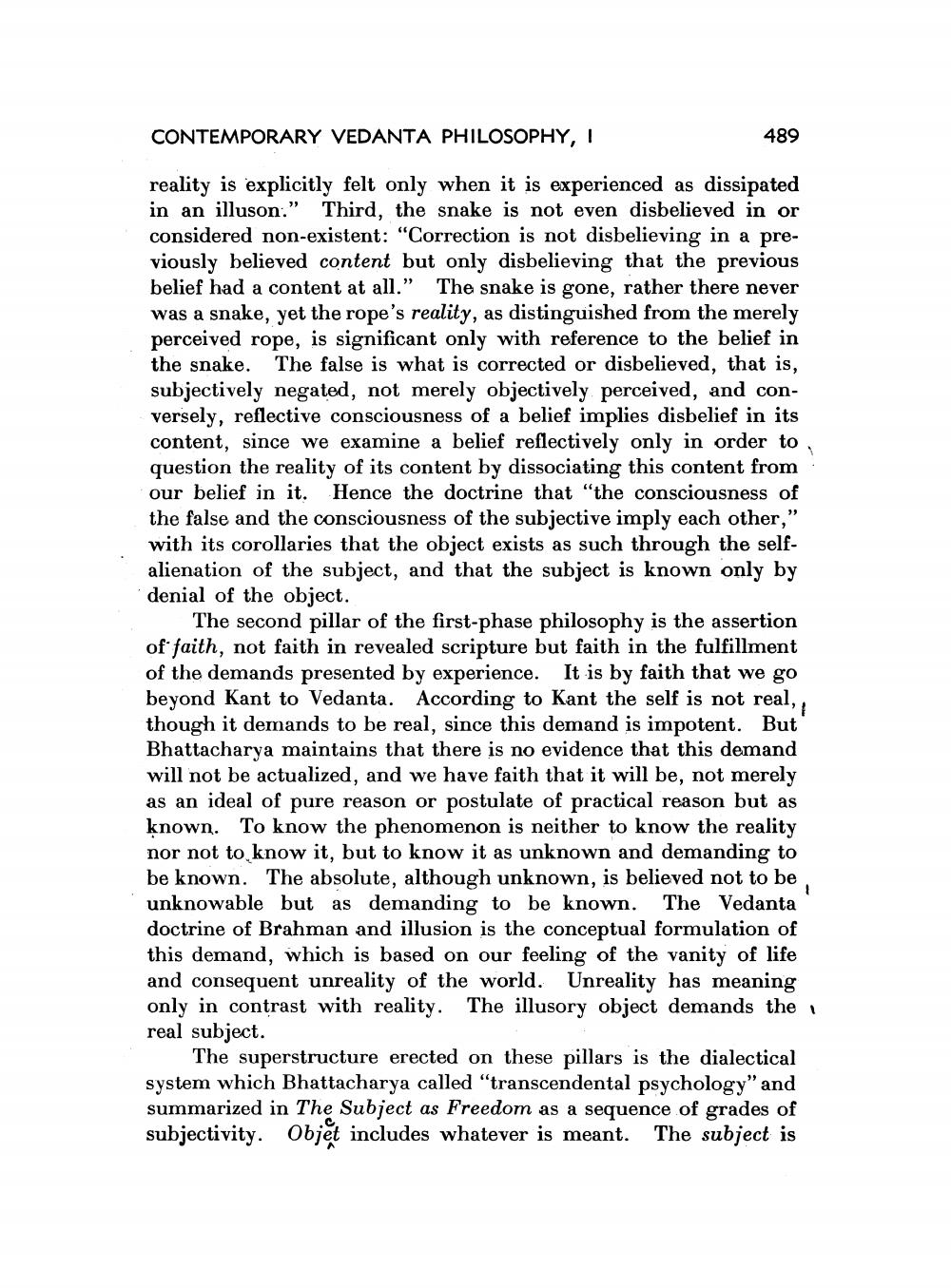Book Title: Contemporary Vedanta Philosophy 01 Author(s): George Burch Publisher: George Burch View full book textPage 5
________________ CONTEMPORARY VEDANTA PHILOSOPHY, I 489 reality is explicitly felt only when it is experienced as dissipated in an illuson." Third, the snake is not even disbelieved in or considered non-existent: "Correction is not disbelieving in a previously believed content but only disbelieving that the previous belief had a content at all.” The snake is gone, rather there never was a snake, yet the rope's reality, as distinguished from the merely perceived rope, is significant only with reference to the belief in the snake. The false is what is corrected or disbelieved, that is, subjectively negated, not merely objectively perceived, and conversely, reflective consciousness of a belief implies disbelief in its content, since we examine a belief reflectively only in order to question the reality of its content by dissociating this content from our belief in it. Hence the doctrine that "the consciousness of the false and the consciousness of the subjective imply each other," with its corollaries that the object exists as such through the selfalienation of the subject, and that the subject is known only by denial of the object. The second pillar of the first-phase philosophy is the assertion of faith, not faith in revealed scripture but faith in the fulfillment of the demands presented by experience. It is by faith that we go beyond Kant to Vedanta. According to Kant the self is not real, though it demands to be real, since this demand is impotent. But Bhattacharya maintains that there is no evidence that this demand will not be actualized, and we have faith that it will be, not merely as an ideal of pure reason or postulate of practical reason but as known. To know the phenomenon is neither to know the reality nor not to know it, but to know it as unknown and demanding to be known. The absolute, although unknown, is believed not to be unknowable but as demanding to be known. The Vedanta doctrine of Brahman and illusion is the conceptual formulation of this demand, which is based on our feeling of the vanity of life and consequent unreality of the world. Unreality has meaning only in contrast with reality. The illusory object demands the real subject. The superstructure erected on these pillars is the dialectical system which Bhattacharya called "transcendental psychology" and summarized in The Subject as Freedom as a sequence of grades of subjectivity. cludes whatever is meant. The subject isPage Navigation
1 ... 3 4 5 6 7 8 9 10 11 12 13 14 15 16 17 18 19 20
